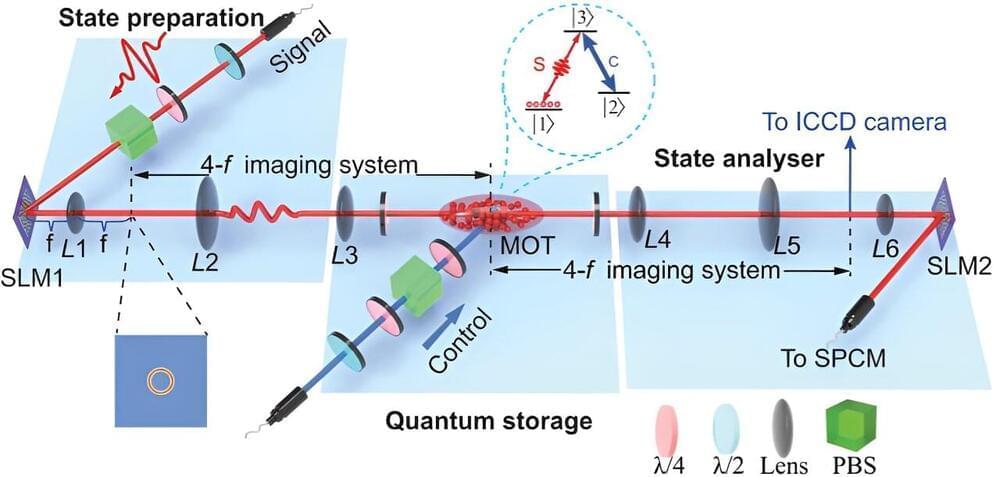Many physicists and engineers have been trying to develop highly efficient quantum technologies that can perform similar functions to conventional electronics leveraging quantum mechanical effects. This includes high-dimensional quantum memories, storage devices with a greater information capacity and noise resilience than two-dimensional quantum memories.
So far, developing these high-dimensional memories has proved challenging, and most attempts have not yielded satisfactory efficiencies. In a paper published in Physical Review Letters, a research team at University of Science and Technology of China and Hefei Normal University recently introduced an approach to realize a highly efficient 25-dimensional memory based on cold atoms.
“Our group has been using the orbital angular momentum mode in the space channel to study high-dimensional quantum storage and has accumulated a wealth of research experience and technology,” Dong Sheng Ding, co-author of the paper, told Phys.org. “Achieving high-dimensional and high-efficiency quantum storage has always been our goal.”
